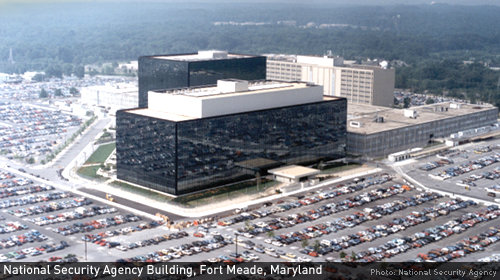
History has taught us that pervasive government surveillance has a profoundly adverse effect on the exercise of free speech – a universal right enshrined both in the Constitution and in international human rights law. This Monday, the Inter-American Commission on Human Rights (IACHR) will hold its first-ever hearing on the NSA's mass surveillance programs and their impact on the right to freedom of expression and other related rights in the Americas.
Monday's hearing is another indication that Edward Snowden's revelations of mass NSA surveillance have become a cause for international concern. Last month, discussions before the United Nations Human Rights Council focused on how to protect the human rights to privacy and free expression in the digital age; the U.N. High Commissioner for Human Rights, Navi Pillay, noted that mass surveillance today poses one of the greatest threats to human rights. A joint statement made by Germany, Liechtenstein, Norway, Switzerland, and Hungary echoed the High Commissioner's concerns and called for greater safeguards for the right to privacy in light of rapid technological advances. Many states also endorsed a report on communications surveillance and human rights, authored by the U.N. Special Rapporteur for freedom of opinion and expression, Frank La Rue. In his report, published in June 2013, La Rue details the adverse impacts of mass surveillance on human rights and encourages states to "revise national laws regulating [surveillance] in line with human rights standards." More recently, before the U.N. General Assembly, President Rousseff of Brazil condemned NSA surveillance as a "grave violation of human rights and of civil liberties."
The IACHR, based in Washington, D.C., is a principal and autonomous organ of the Organization of American States ("OAS"), whose mandate is to promote and protect human rights in the Americas. The ACLU requested Monday's hearing to inform the commission of the nature and scope of NSA surveillance activities and their impact on privacy and the freedoms of expression and association of millions of people in the region – U.S. and non-U.S. citizens alike.
At the hearing, the ACLU will speak to the NSA's mass surveillance programs, and Frank La Rue will detail the human rights violations implicated by the programs. The Open Society Justice Initiative will also highlight the inadequacy of legal protections in the United States for whistleblowers – like Edward Snowden – employed in the national security sector. Without Snowden's disclosures, the world would not know the extent of the NSA's mass surveillance, and the debate about its legality and impact on ordinary people wouldn't be taking place. Yet, the government has chosen to prosecute him under the Espionage Act, regardless of the public's interest in the disclosures or any demonstrable harm to U.S. national security interests – an approach running counter to human rights laws.
The United States will be represented at the hearing, and for the first time on an international stage, will be asked to justify its mass surveillance of people in the Americas, and its treatment of Snowden under U.S. and human rights laws. The world will be watching.
Learn more about government surveillance and other civil liberty issues: Sign up for breaking news alerts, follow us on Twitter, and like us on Facebook.


